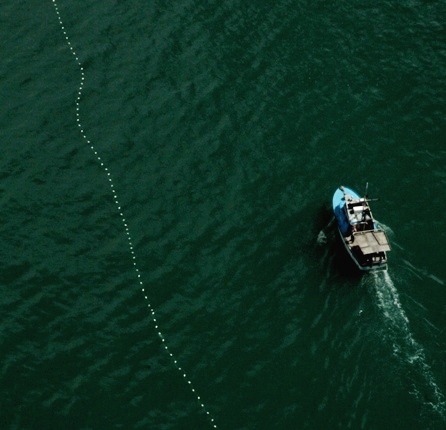A new dockside safety exam requirement for many commercial fishing boats has been postponed for a couple years. The once-voluntary safety checks were slated to become mandatory last October for vessels that operate more than three miles from land. However, Congress pushed that deadline back with passage of the Coast Guard’s latest funding bill.
“The authorization act for the Coast Guard for 2010 mandated mandatory dockside exams for certain commercial fishing vessels, the ones that were fishing more than three nautical miles from the territorial sea baseline and that was going to take effect on the 16th of October, 2012. Here at the last minute before the Christmas break, both houses of the Congress passed and the President signed the Coast Guard and Marine Transportation act of 2012 and part of the effect of that was to delay the implementation of those mandatory exams into October of 2015,” said Ken Lawrenson,the Coast Guard’s Fishing Vessel Safety Coordinator in Alaska.
Lawrenson estimated more than half of Alaska vessels that fish more than 3 miles offshore have already participated in the voluntary exams and received the safety decal over the years, “Mainly because, first of all, they recognize that it’s a good idea because of the unforgiving, harsh nature of the marine environment up here as well as those vessels…a lot of those vessels already have to comply with observer requirements and so their insurance underwriters…there’s another reason for them to go ahead and have that decal. They have already been doing that for the last ten years, fifteen years in some cases,” said Lawrenson.
According to Lawrenson, participation in the voluntary program has been less frequent among vessels that operate within three miles of shore in Alaska. He estimated only about 15 to 20 percent of boats in that category have received the decal. Still he encourages fishermen to get the decal whether or not it’s required:
“It’s always a good thing, I think to put an extra set of eyeballs looking at the safety and training of the crew. That’s certainly an important component of survival out here. It’s a dangerous business. We all kind of accept that but that doesn’t mean there’s not an obligation, I think, to do what should be done and certainly having the coast guard on board and establishing that relationship is. I think, part of the expectation for most reasonable folks,” he said.
Regardless of the delay in the new requirements, Lawrenson noted that the exams remain mandatory for some vessels, including Bering Sea crabbers and any boats that have to carry federal fishery observers.
For a safety-gear checklist tool and information on scheduling a safety exam, click here.












